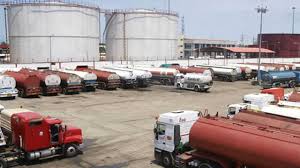Nigeria’s importation of Premium Motor Spirit, popularly known as petrol, has fallen to its lowest level in eight years as local refining capacity and government reforms continue to reshape the country’s downstream oil market.
A new report by Argus, released on Monday, showed that Nigeria received an average of 116,000 barrels per day of petrol, equivalent to 18.44 million litres shipped by sea in September 2025. This represents a sharp decline from 154,000 barrels per day, or 24.49 million litres, recorded in August. It marks the lowest import volume since 2017, according to data from Kpler, a global energy intelligence firm.
The decline came even as operations at the 650,000-barrel-per-day Dangote Refinery slowed down due to ongoing maintenance and an industrial action by the Petroleum and Natural Gas Senior Staff Association of Nigeria (PENGASSAN). The temporary shutdown affected production from the refinery’s Residual Fluid Catalytic Cracking (RFCC) unit, a key section responsible for producing gasoline.
According to Argus, “Nigerian gasoline imports in September again scraped at least eight-year lows, even with the country’s 650,000-barrel-per-day Dangote refinery undergoing maintenance and facing industrial action. The country received 116,000 barrels per day of seaborne gasoline last month, down from 154,000 barrels per day in August, the lowest on Kpler records that began in 2017.”
The report added that net petrol imports dropped to a new low of 38,000 barrels per day in September, even though some cargoes were shipped from Dangote Refinery to New York Harbour. Total gasoline loadings from Nigeria were recorded at 77,000 barrels per day, the second-highest on record.
Industry sources confirmed that the RFCC unit at the Dangote Refinery was taken offline on September 2 and was expected to return to full operation by early October. Towards the end of September, a dispute between the refinery management and PENGASSAN led to a two-day strike that disrupted natural gas and crude oil supply. The strike was, however, resolved in early October after intervention from both parties.
Argus further revealed that crude oil deliveries to Nigeria’s refineries fell to 375,000 barrels per day in September, down from 440,000 barrels per day in August. Despite the reduction in imports and refinery challenges, there were no reports of fuel scarcity or supply shortages across the country. Petrol prices at the Dangote Refinery remained relatively stable around ₦820 per litre.
The report also noted that Dangote’s naira-for-crude programme helped stabilise domestic petrol sales. Under this arrangement, the refinery pays for crude oil in naira to the Nigerian National Petroleum Company Limited (NNPC) and, in return, sells petrol and diesel to the local market in naira. A one-day suspension of the naira-based sales on September 26 was resolved amicably, according to a statement from the Federal Ministry of Finance.
Dangote Industries Limited disclosed that Nigeria’s daily domestic petrol demand averaged 40 million litres in September, equivalent to about 252,000 barrels per day.
Global petrol prices also increased during the month due to supply disruptions caused by the temporary shutdown of the Dangote RFCC unit. Argus noted that the benchmark non-oxygenated gasoline barge crack to ICE Brent crude surged to a 16-month high of $21.17 per barrel on September 17, driven by tighter supply conditions across the Atlantic Basin.
Data from Kpler further revealed that Nigeria’s petrol imports fell by more than 40 per cent to 162,000 barrels per day between January and September 2025, compared to the same period in 2024. The country, which was once the world’s fifth-largest petrol importer, has now dropped to the eighth position globally. Despite this, Nigeria remains Europe’s largest gasoline buyer, though its import volume has nearly halved compared to last year.
Experts believe the decline in petrol importation signals progress toward self-sufficiency in local refining. However, they caution that full benefits will depend on consistent crude oil supply, stable refinery operations, and effective regulation of domestic pricing.
